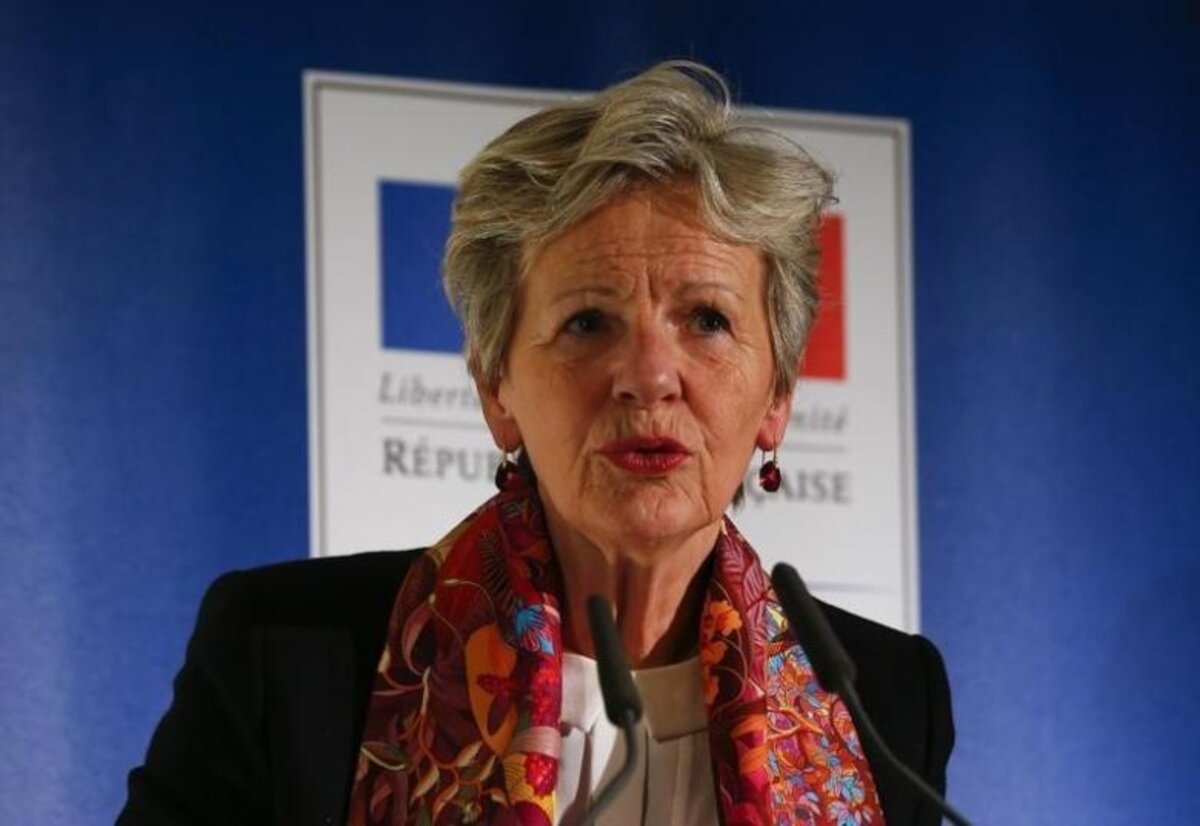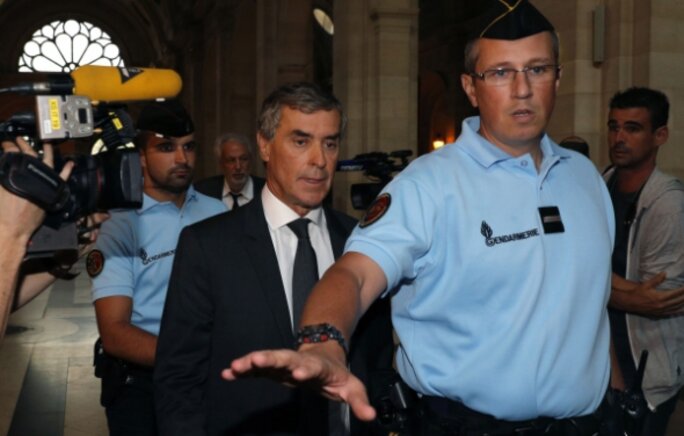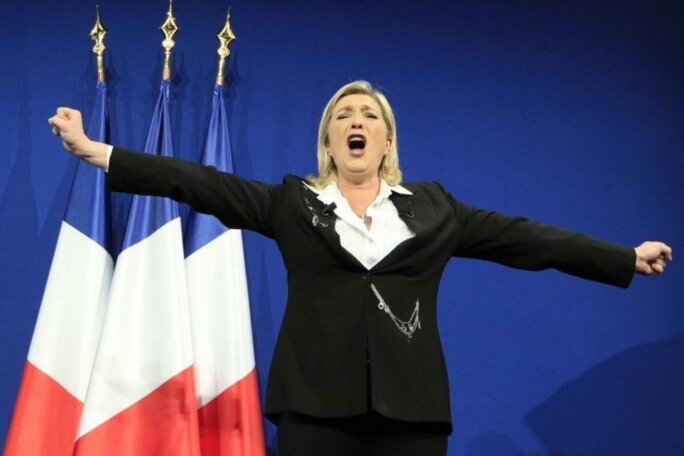Night descends on the city and up on the heights of a city skyscraper are large offices humming with computers and IT systems, complete with eavesdropping software, where a group of about 60 specialist police investigators are working on a major political corruption case involving hundreds of millions of euros. Down below in the garage, cars are readied for a series of dawn raids and arrests.
The scene is typical of television fiction but is, however, far removed from the reality of the French police and judicial services engaged in the fight against corruption and financial crime, who struggle to cope with the modest resources placed at their disposal, and who are scattered and isolated among different agencies.
Mediapart interviewed a number of investigators involved in the fight against corruption agencies, both at a national and regional level, and they paint a bleak picture. Most of those interviewed for this report requested that their names be withheld, notably because of the code of confidentiality they are required to uphold to.
Following the case of Jérôme Cahuzac, the former finance minister who was exposed by Mediapart in December 2012 as having held a tax-evading foreign bank account for more than 20 years, and who finally confessed to the fact after four months of strenuous denials, the now outgoing socialist government demonstrated a certain political will to promote probity in public office with the creation of new structures to help the fight against corruption.
These include the High Authority for Transparency in Public Office, the HATVP, and the specialist anti-financial crime branch of the public prosecutor’s office, the PNF, both of which were set up three years ago, and the French Anti-Corruption Agency which will become operational in March.

Enlargement : Illustration 1

The HATVP is tasked with recording, monitoring and publishing declarations of assets and economic activities of those in public office, including elected politicians, members of government, senior advisors and managers of public bodies, in cooperation with the tax administration. The PNF, for its part, groups together magistrates specialised in financial crime. The French Anti-Corruption Agency, under the auspices of the justice ministry and finance ministry, will have a largely advisory role in combating corruption and coordinating assistance for those actively involved in investigations.
In theory, these three new institutions have a complimentary role in tracking down and prosecuting white collar crime notably among politicians and senior civil servants.
But however laudable was the move to create them, prompted by the Cahuzac scandal, the government has resisted handing over real independent power of investigation and prosecution to one single super-agency.
So far, the HATVP, which employs about 50 staff and which is presided by senior magistrate Jean-Louis Nadal, whose brief has been gradually widened despite objections from some political and business quarters, is regarded so far as having been a success. By giving the public access to information about the wealth and interests of decision-makers, and in doing so shining light on secretive lobbyists, as the authority does, it has introduced a new code of morals in France. It also serves as a model for the creation of other similar bodies, such as the Paris City Hall’s commission of deontology.
The PNF, which is headed by magistrate Éliane Houlette, came under the media spotlight this year with its preliminary investigation into allegations that conservative presidential candidate François Fillon organised the fraudulent payment of hundreds of thousands of euros from parliamentary funds to members of his family. A report produced earlier this month by the National Assembly, the French lower house of parliament, underlined the early success of the PNF. Despite its modest means, with just 15 magistrates handling about 400 complex investigations, the PNF has demonstrated a technically rigorous and rapid management of the cases it investigates. A court dedicated to hearing the cases prosecuted by the PNF has been created within the wider Paris law courts complex, with magistrates specialised in financial crime and who hear the cases submitted to them within a relatively rapid time lapse.
Since its creation in December 2013, the PNF’s investigations have resulted in 31 trials, with another 12 already due in 2017. During its preliminary investigations, it has confiscated a total of 79.4 million euros-worth of assets, before trials. When adding to that sum the amount it has collected in bail bonds, the PNF has brought in 1.5 billion euros (of which 1.1 billion involved the bail paid by Swiss bank UBS in a case of its alleged complicity in tax evasion). On the face of it, the PNF more than pays its way, while also serving a pedagogic role – notably during the trial of Jérôme Cahuzac, when the prosecution team underlined the estimated annual cost of tax evasion to the public purse in France at between 60-80 billion euros.
The French Anti-Corruption Agency is to be headed by Charles Duchaine, an examining magistrate who was later in charge of the agency that manages assets that have been seized or frozen, called the Agrasc. This new agency, which replaces the former Central Service for Prevention of Corruption, the SCPC, will begin functioning in March with a staff of 70 (up from the SCPC staff of about a dozen). Duchaine told Mediapart that he is looking to recruit specialists from the finance ministry, the Court of Audit, customs investigators, the police and gendarmerie who “have the profile of being investigators, snoopers who know how people are corrupted”.
“If corruption was dealt with properly, the corrupters and the corrupt would stop,” said Duchaine. “They are very socialised people, they don’t want to lose their position.”
But behind the official statements and sometimes spectacular cases that make the headlines, the French anti-corruption services work with very insufficient means. The PNF is already facing a logjam of cases, with major investigations into the Panama Papers and Football Leaks press revelations, or the suspicions of tax dodging concerning Google and McDonald's, all of which are time-consuming and where establishing international cooperation can be a complex issue. “Criminal procedures are very restrictive and large lawyers’ practices multiply appeal moves,” commented one magistrate speaking on condition his name was withheld. “The result is that it takes two years on average to lead a case into tax fraud, and five for a case of corruption.”
When Sarkozy was trapped in a lift
Importantly, the PNF relies on delegating enquiries to police or gendarmerie investigators, and the latter are understaffed. The gendarmerie’s Paris Section de Recherches (SR), one of the force’s specialist regional investigating branches and the only one which has national jurisdiction, has a total of 68 detectives of which just 12, assigned to investigating financial crime, work with the PNF.
The national police Central Office for the Fight Against Corruption and Financial and Fiscal Crimes, the OCLCIFF is also overstretched. “The whole of the financial [crime] services are currently strained,” said one OCLCIFF official, who asked for his name to be withheld. “I don’t know if it’s because of a lack of political will, but the priority is placed on terrorism and minor delinquency. The financial [cases] are not seen as having an impact on public order.”
The OCLCIFF has 77 active investigators, with another 16 posts currently unfilled. The number of cases pile up each month. It is therefore of no surprise that a case like that of François Fillon, the conservative presidential candidate who is suspected of paying his wife and two of his children out of public funds for work that was never carried out, and which is now the subject of a judicial investigation after a preliminary enquiry opened on January 25th by the PNF, takes time. With first-round voting in the elections to begin in late April, Fillon, who denies any wrongdoing, has complained that the length of the enquiry, delegated to the OCLCIFF, is unnecessarily damaging his campaign. Meanwhile, the OCLCIFF is also investigating the suspected misuse of European Parliament funds by the far-right Front national party, which allegedly fraudulently remunerated party workers as parliamentary assistants.
“We juggle with priorities,” said one official, whose name is withheld. “By pulling out all the stops on one case it means holding up the others.” The workload of the OCLCIFF rose year-on-year in 2016 by about 25%, representing 100 extra cases. Created in 2013, the OCLCIFF is based in a bland building in Nanterre, a suburb of western Paris. It is made up of two branches (called “brigades”), the BNRDF which is involved in tax fraud cases, and the BNLCCF which investigates corruption. While the BNRDF is helped by finance ministry investigators, the BNLCCF, which is involved in cases as serious as the suspected Libyan state funding of former president Nicolas Sarkozy’s 2007 election campaign, is struggling to cope with the resources it is given.
As anecdotal evidence to this, the vehicles at its disposition are all more than ten-years-old, and their insufficient numbers mean cars sometimes have to be borrowed from other services. “Recently, to carry out a search of premises in the south-west [of the country] there was only one old banger available, which was threatening to break down at any moment,” said one investigator. “They only change them when they clock up 200,000 kilometres.”

In July 2014, Nicolas Sarkozy was placed in custody for questioning over a separate case, involving his alleged attempt to gain confidential information about a case in which he was implicated, by offering to help a magistrate informer to be appointed to a prestigious post in Monaco. When Sarkozy arrived at the OCLCIFF headquarters, he was accompanied in a lift to the interview room. “Mr. Sarkozy remained stuck for a long while in a lift which had broken down,” said one investigator. “Afterwards, we had to borrow a car from the tax-fraud police to take him before the magistrates. The central office [OCLCIFF], which is supposed to be the elite French anti-corruption service, didn’t have a car worthy of the name. It gives the wrong kind of impression, all the same, when it involves taking a former French president to the financial crime [magistrates’] offices.”
The lack of numbers is an acute problem. “The BNLCCF is snowed under,” said a magistrate, whose name is withheld. “Searches of premises are planned two or three months ahead. If we want to carry out a raid during the week, it will be to the detriment of the others. The investigating groups are weighed down by the case files. There is, for example, only one investigator for the case of [suspected] corruption at the [Monaco-based] International Association of Athletics Federations, whereas in the United Sates or Great Britain there would be 15. The Anglophone press even asks whether France is not trying to cover up the affair because it [Paris] is a candidate for the Olympic Games in 2024.”
'The State likes those who are malleable'
The Paris police prefecture’s financial crime squad, the Brigade Financière (BF), based in a modest-looking building in the 13th arrondissement of the capital, on the rue du Château-des-Rentiers, is faced with the problem of how to keep and promote its detectives. “Economic and financial [investigations] have been in great difficulty for two years,” said one senior member of the BF. “All the staff are going over to terrorism [investigations]. We’ve become an adjustment variable. In its heyday, there were 110 officers at the BF, then 80 a few years ago. Today we must be at 64. That could work if we didn’t have so many cases. But with the accumulating demands from examining magistrates and the public prosecutor’s offices, we are constantly moving from one priority to another.”
Over recent years, a number of the BF’s best detectives have left for the intelligence services, the DCRI, or even the OCLCIFF, and the BF has difficulty recruiting staff. Financial crime is regarded as an unattractive specialization, which requires a period of specific training and which has comparatively little to offer as a career. It shares this problem with the OCLCIFF.
“With us, nothing or nearly nothing is done to hold on to staff once they have been trained,” said an officer with OCLCIFF. “In the field of the fight against drug trafficking, for example, when investigators pull of a major bust they can be given a boost for their career.” But, he said, in the case of anti-corruption investigations, swooping on a high-profile figure like Sarkozy, or Dassault aviation group boss Serge Dassault (who was this month handed a 2 million-euro fine for moneylaundering), results in no such favour. “No head of service would put in a request for your promotion, it’s too sensitive,” said the OCLCIFF officer.

Some cases involving influential figures can cause problems for investigators, and the police administration is not always supportive of its troops. Some officers complained of events that occurred during an investigation into businessman Marcel Campion, nicknamed the “Funfair King”. With close contacts among politicians and senior police officials, it is suspected that Campion was tipped off before a police search of premises belonging to him, when his safe had been emptied beforehand and a video of the raid was posted on the internet without prompting any reaction from the authorities.
If the three anti-corruption bodies – the High Authority for Transparency in Public Office, the PNF and the soon-to-be-launched French Anti-Corruption Agency – suffer from a lack of resources, the situation masks even greater difficulties among the judicial and police services in the provinces. “We don’t have the resources to properly deal with economic and financial delinquency,” said a public prosecutor based in one average-sized town, whose name is withheld. “My colleagues all say the same thing – we have less and less police trained in specialized services. Resources are mobilised for street crime, drug trafficking, house break-ins. The result is that the economic and financial investigations, labour law and environment [sectors] pay the price. Sometimes it takes 12 or 18 months for a case to be simply taken into account.”
Another public prosecutor, based in a large provincial town, gave an even harsher view. “The truth is that our capacity to deal with specialised delinquency is at stake. Broadly, the police and judicial resources are insufficient, and this poverty is all the greater with the inflationary context of the [June 2017] parliamentary elections. As a result, priorities impose themselves, we concentrate on physical assaults and organised crime. But over the past 20 years, all the police investigation services which work on economic and financial crime have seen a contraction in staff numbers, except for customs investigators.”

Enlargement : Illustration 4

Indeed, the customs investigation services (the “Service national de la douane judiciaire”, or SNDJ), which comes under the auspices of the finance ministry, has an enviable 250 detectives for a total average ongoing workload of about 1,000 cases.
This same public prosecutor, who is highly experienced, complained that a move in 2004 to build up specialised regional investigation agencies has been largely abandoned. He said the ‘Juridictions Inter-Régionales Spécialisées’ (JIRS), agencies with specific regional jurisdictions and made up of police, customs and finance ministry specialists, had been left “to lie fallow” in the process - “whereas the fight against economic and financial crime requires specialization and means, it’s as simple as that,” he added. “Creating a PNF and an anti-corruption agency in reaction to events that are given widespread media coverage is perhaps a good thing, but it contributes to a dispersal of resources instead of modifying the judicial map and reinforcing jurisdictions.”
A further criticism is that justice and police services in the provinces show little enthusiasm in confronting local high-profile political and business figures. “For public prosecutors, economic and financial cases are not profitable,” commented a presiding magistrate. “They are long and complicated, whereas they are graded according to the activity of their department. A public prosecutor prefers a fast-track hearing that lasts 15 minutes with a fine at the end of it to a case brought by a JIRS which lasts years and eats up financial resources. To have a successful career in the magistrature one must not rock the boat, and economic and financial cases necessarily do. Unless one is a little crazy, magistrates cannot be entirely independent when their career is at stake. The State likes those who are malleable.”
'You have to fight, to lie'
Another source, a magistrate who has served in the public prosecutor’s department both in Paris and the provinces, also bemoaned the loss of specialists in financial crime among police services over recent years. “The prosecutors no longer have anyone they can give economic and financial cases to, and which also offer no interest in terms of statistics […] So it’s better to ratchet up the numbers with drug trafficking on housing estates. There you have 20 arrests and 10 imprisonments.”
According to one gendarmerie investigator based in a specialised financial crime unit in the provinces, the success of an investigation depends on the attitude of the different hierarchies involved with the case. “The interest in cases of political- financial crime is cyclic, depending on the bosses who lead the [investigatory] units,” he said. “It’s down to men. A corruption case will see the light of day if you have the luck to be given all the green lights: the support of the public prosecutor’s office, the regional [police] chiefs, and the follow through from the general management.”
The experience of one senior police investigator was sobering. “The more you climb the political tree, the more you meet with reticence,” he said. “It takes magistrates with solid shoulders, and a hierarchy which is afraid of nothing. In ten years working financial cases, it happened to me on just one occasion that all the lights were on green. My boss told me: ‘you tell me which investigators you want and I’ll assign them to you’. I took the best economic and financial specialists. The result was 12 to 15 detectives full-time during three years.”
“The difficulty in these tentacular cases is to find the means to dedicate so much time, to the detriment of other cases. During this time, holdups and murders continue. This creates ill-feeling between colleagues. To invest in work on the political-financial side is complicated because it’s not great for making up the numbers, except when assets are seized.”
“In these [economic and financial crime] units you are given as many cases of ‘misuse of company assets’ - like the manager of a company who embezzled 30,000 euros to buy a car - as you are handed cases concerning public probity, with a mayor who’s subsidized an association. So you can soon be drowned.”
Another investigator questioned by Mediapart was visibly outraged by the approach of his hierarchy. “During a meeting, in which I was flabbergasted, my boss told me that our superior didn’t want any more political-financial cases, because he had to meet with these people,” he said. “And when it came to questioning a director with a French multinational, our superior wanted it to be held in his own offices. He welcomed the director, shook his hand, ‘Come on in’, and closed the door in front of us. All the same, there is a code for the procedure of criminal investigations. The red carpet is rolled out for these people, but while they might be the most important French managers, they are delinquents.”
“During an investigation into ‘unlawful acquisition’ of financial interests by an elected politician, who we wanted to take into custody for questioning, my boss asked us ‘Are you sure, certain about taking him into custody for questioning? You’re not going to place him in a cell, all the same?’ More than certainly, because he’s an elected politician, he has responsibilities. Concerning some guy dealing shit in the street, we wouldn’t take any precautions, but with an elected politician it’s ‘he won’t be put into a cell, he won’t be given this, or that’. There’s the electoral campaign, it’s the seasonal truce. We have to be wily to keep the interesting cases. You have to fight, to lie. ‘No, there’re no elected politicians in this case file, only business heads or, at worse, a head of department’.”
-------------------------
- The French version of this article can be found here.
English version by Graham Tearse


